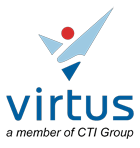The adoption of AI has become a key factor for businesses that want to stay competitive in the digital era. It has become an essential part of business strategies in the age of digital transformation. Red Hat Enterprise Linux AI (RHEL AI) is an innovative solution that integrates the stability, security, and flexibility of Red Hat Enterprise Linux with the latest generative AI capabilities.
With an architecture optimized for AI workloads, RHEL AI helps companies build, manage, and deploy AI models more quickly and efficiently. In addition, RHEL AI is supported by the Foundation Model Platform, developed with strategic partners such as Lenovo, to ensure high performance in AI processing.
Let’s dive deeper into how RHEL AI can be a game-changer in the world of generative AI.
What is Red Hat Enterprise Linux (RHEL) AI?
Red Hat Enterprise Linux AI (RHEL AI) is an innovative platform from Red Hat designed to support the development, deployment, and management of AI in enterprise environments. RHEL AI combines the reliability and security of Red Hat Enterprise Linux (RHEL) with advanced AI capabilities, enabling enterprises to run AI workloads more efficiently, flexibly, and securely.
As a stable, secure, and flexible platform for developing Generative AI and Foundation Models at the enterprise level, RHEL AI is supported by a broad AI ecosystem, high scalability, and top-notch security—making it an ideal choice for organizations looking to leverage AI to drive innovation and enhance operational efficiency.
Problems That Can be Solved with RHEL AI
RHEL AI is a solution that facilitates the development, management, and deployment of AI models in enterprise environments. It helps companies overcome various challenges associated with implementing AI in the workplace. Here are four key problems that RHEL AI can address:
- Complexity of Managing AI Infrastructure
Managing AI infrastructure involves complex hardware and software configurations. Additionally, AI models are often deployed in hybrid and multi-cloud environments, making monitoring and orchestration more challenging.
- Difficulty in Optimizing AI and ML Performance
Data processing and AI model training require high computational power, yet performance may suffer due to suboptimal software optimization for AI hardware. Inefficient workloads can further slow down AI model training and inference.
- Security and Compliance
The risk of security breaches and data leaks—especially in cloud-based AI environments—prevents many companies from fully adopting AI. Organizations also face challenges in meeting industry regulations, which require thorough auditing and compliance with specific standards.
- AI Development and Deployment
The AI development process is often time-consuming and costly due to limited access to ready-to-use AI models. This has led to an increasing demand for MLOps tools that support automated AI development and deployment.
Benefits of RHEL AI for Businesses
RHEL AI is the best solution for businesses that want to adopt AI more safely, efficiently, and scalable. With RHEL AI, businesses can accelerate innovation, improve operational efficiency, and ensure AI is optimized. Here are four key benefits of RHEL AI for businesses.
Stability and Optimal Performance for AI Workload
Utilizing a customized kernel to handle AI-intensive workloads, RHEL AI offers optimized performance for AI and ML. Supported by reliable hardware optimized for x86 processors, ARM, and GPU-based infrastructure, it can process large AI models with high efficiency to support applications based on foundation AI models and deep learning
Enterprise-Level Security and Compliance
As a key factor in AI deployment for businesses, RHEL is equipped with security features ranging from data isolation and protection with reliable security frameworks such as SELinux and container security, compliance with industry standards to ensure businesses meet security and regulatory requirements, and automatic updates and patching to reduce the risk of security vulnerabilities during AI deployment.
Flexibility and Scalability for Various Business Needs
RHEL AI is designed to run in on-premises, hybrid cloud, and multi-cloud environments with high scalability for various business needs, from predictive analytics to AI-based automation. The solution is also fully integrated with popular AI frameworks such as PyTorch, TensorFlow, and other generative AI models.
Operational and Cost Efficiency
RHEL AI is optimized to reduce the complexity of managing AI, so AI teams and developers can focus on innovation. Better performance and resource consumption help companies save operational costs and automate AI pipelines quickly and efficiently.
Read More: Boost Efficiency Through Effective Business Operations
RHEL AI vs RHEL Without AI, Which One is Better?
Red Hat Enterprise Linux (RHEL) as long been the industry standard for a reliable, secure, and well-managed Linux operating system. However, with advancements in AI technology, Red Hat now offers RHEL AI—a platform designed to optimize AI and ML workloads.
RHEL AI differs from the standard RHEL in several key ways. Here are the main points of comparison.
| Aspects | RHEL AI | RHEL Tanpa AI |
| Support to AI and ML | Designed specifically for AI and ML, including GenAI models. | Lacks specialized AI optimizations, focusing instead on general workloads. |
| Hardware Compatibility | Optimized for AI/ML hardware, including GPUs and AI accelerators. | Compatible with a wide range of hardware but without specific AI acceleration optimizations. |
| Foundation Model & AI Tools | Includes a foundation model platform, containerized AI stacks, and OpenShift AI integration. | Does not include built-in AI tools—users must install and configure them manually. |
| AI Model Automation & Management | Supports AI model lifecycle management, including training, deployment, and inferencing with high efficiency. | Lacks specialized features for AI model lifecycle management. |
| Security & Compliance for AI | Enhanced security for AI workloads, including Linux policies and AI data governance. | Standard RHEL security, without specific protections for AI models and datasets. |
| Performance for AI Workload | Optimized for low latency and high throughput in AI training and inferencing. | General performance, with no specific tuning for AI workloads. |
How Red Hat Enterprise Linux AI Works?
With its flexible open-source infrastructure, automated AI pipeline, and high-security standards, RHEL AI is an ideal choice for companies looking to adopt generative AI at scale. Here’s how RHEL AI works.
- Open-Source Foundation for Generative AI
RHEL AI is built on Red Hat Enterprise Linux (RHEL) and OpenShift, providing a container-based environment for AI application management and orchestration. Its open-source approach allows RHEL AI to support various AI frameworks, including PyTorch, TensorFlow, and Hugging Face.
It also leverages AI-optimized hardware from partners such as Lenovo, which supports dedicated GPUs and accelerators for AI workloads. RHEL AI offers flexible deployment options, whether in the cloud, on-premises, or in a hybrid cloud environment.
- Integrated and Efficient AI Pipeline
RHEL AI provides a container-based workflow that enables organizations to manage AI pipelines from start to finish. From model development and training, RHEL AI offers a pre-configured environment that simplifies the work of data scientists.
Support for GPUs and hardware accelerators ensures faster and optimized model training. Additionally, RHEL AI integrates with Red Hat OpenShift AI for model management and orchestration, efficiently handling the model lifecycle from experimentation to production.
Automated pipelines allow periodic model re-training to maintain data accuracy and relevance. Once trained, AI models can be deployed in containers for seamless integration with business applications. RHEL AI also enables real-time AI inference with hardware-based performance optimizations, including GPU acceleration.
- AI Security and Compliance in Enterprise Environments
RHEL AI adheres to high-security standards to ensure data and AI models remain protected. Security-Enhanced Linux (SELinux) and Role-Based Access Control (RBAC) restrict access to AI models, enhancing security.
Additionally, automated updates and patching reduce the risk of security vulnerabilities. Model transparency and auditability features ensure compliance with industry regulations.
- Support for Foundation Models & Generative AI
supports foundation model development and fine-tuning, enabling organizations to customize generative AI models to meet their specific needs.
Through collaboration with Lenovo AI Infrastructure, RHEL AI optimizes performance on NVIDIA and AMD-based hardware, improving model training and inference efficiency. Thanks to its flexible open-source ecosystem, organizations can leverage AI without being locked into a specific vendor.
LLM with Open Source
The open-source Large Language Model (LLM) is an AI solution that enables companies to develop open-source-based innovations by providing full control over AI model development, eliminating concerns about vendor lock-in. Companies can customize AI models to meet specific needs, enhance transparency, and ensure security and regulatory compliance.
RHEL AI emphasizes that an open-source approach to LLM is essential for building a flexible and reliable AI ecosystem, including databases for training and deploying AI models. Integration with Red Hat OpenShift enables automation at scale for AI inference. Additionally, RHEL AI ensures that AI models adhere to industry standards and regulatory requirements.
Red Hat has introduced several innovations, including AI-driven infrastructure management, collaboration with other open-source ecosystems, and the development of more efficient and cost-effective AI models. Red Hat’s approach focuses on democratizing access to AI, emphasizing open-source models that can be tailored to the needs of companies of all sizes.
Key Advantages of Red Hat Enterprise Linus (RHEL) AI
RHEL AI offers a combination of stability, high-level security, open-source flexibility, and multi-cloud scalability, making it a reliable solution for companies looking to adopt AI at scale. Here are five key advantages of RHEL AI:
- Stable and Reliable AI Platform
RHEL AI provides broad compatibility with modern AI hardware and software, ensuring a stable and optimized platform for enterprise AI workloads. - Optimized for Foundation Models and AI Workloads
Designed to enhance the development of smarter and more efficient AI applications, RHEL AI is also integrated with the Lenovo Foundation Model Platform, enabling companies across various industries to build large-scale AI solutions more efficiently. - Security and Compliance
RHEL AI ensures a secure AI environment through containerization and workload isolation, supported by regular security updates and industry certifications. With a “security by design” approach, it guarantees safe and compliant AI data processing. - Flexibility and Interoperability
Supporting open-source AI frameworks, RHEL AI integrates seamlessly with various hardware solutions and provides container-based AI management tools, including Kubernetes, for simplified deployment and scaling of AI models. - Scalability and High Performance
Built for big data processing and complex AI models, RHEL AI supports multi-cloud and hybrid cloud environments, allowing deployment across AI edge, on-premises, private cloud, and public cloud infrastructures.
RHEL AI Key Features
To strengthen AI capabilities for enterprises, RHEL offers the following outstanding features:
- Support for LLM Granite 3.0 8B, which is optimized for non-English natural languages and capable of generating code and function calls.
- Integration with Docling, an open-source community project that helps convert common document formats, such as PDF, into formats like Markdown and JSON, simplifying the preparation of generative AI training data and applications.
- An extensive Gen AI ecosystem that supports various accelerator chip architectures, including NVIDIA and AMD, providing users with greater flexibility in choosing hardware according to their needs.
- Integration with foundation model platforms for generative AI, enabling efficient development and deployment of AI models in enterprise environments.
Learn More: Red Hat Enterprise Linux (RHEL): Power Your Next-Generation Infrastructure
Learn More About RHEL AI at Virtus
Virtus Teknologi Indonesia (VTI), an authorized Red Hat partner, provides RHEL AI solutions that offer flexibility, efficiency, and robust support for the security and compliance of your business’s AI model development.
As part of CTI Group, Virtus is backed by a team of professional, experienced, and certified IT experts, ensuring seamless RHEL AI implementation without the risk of trial and error. Now is the time to optimize your AI implementation strategy with the best solutions from Virtus.
Contact us today by clicking the link to start your consultation with our team.
Author: Ervina Anggraini – Content Writer CTI Group



























